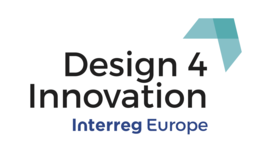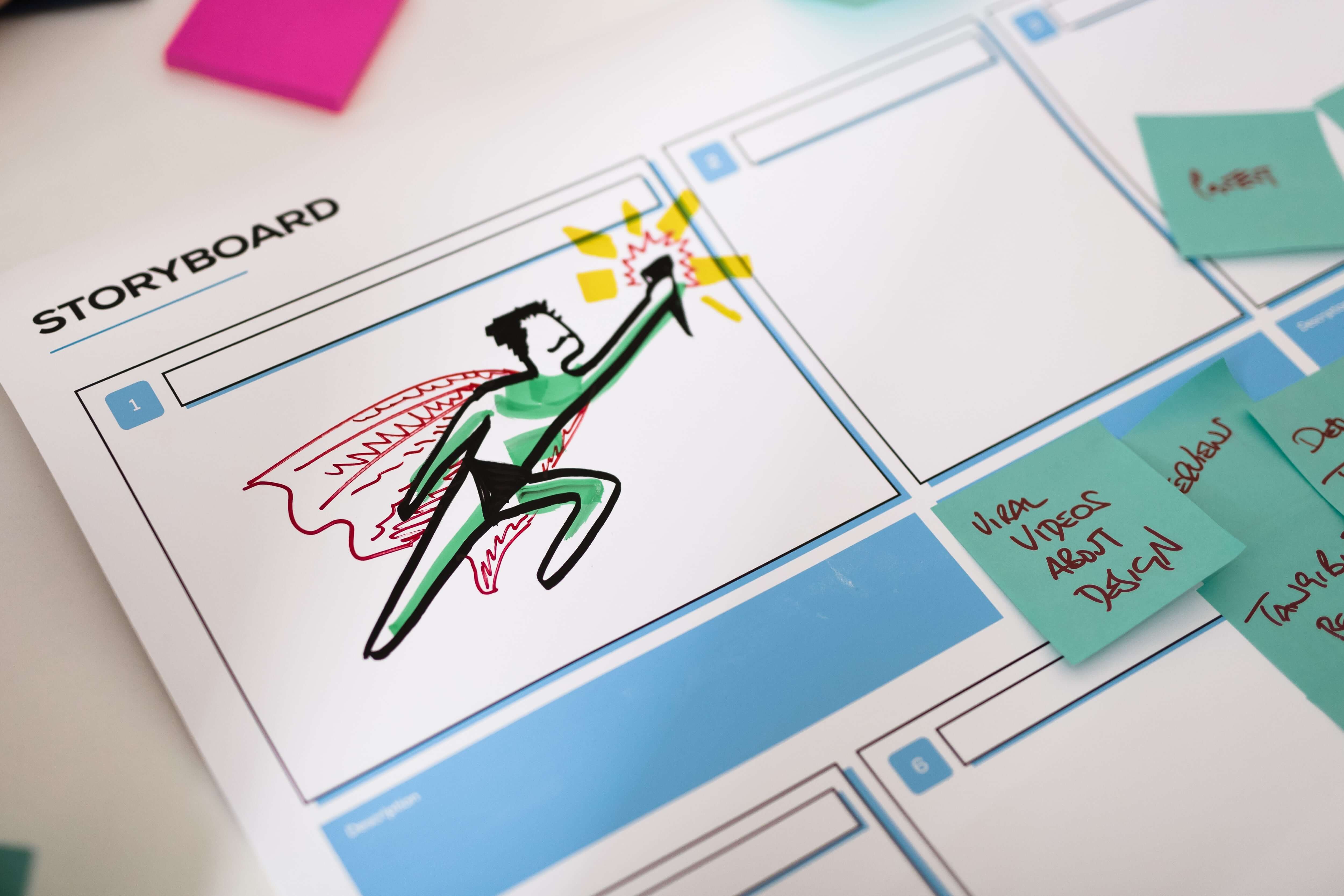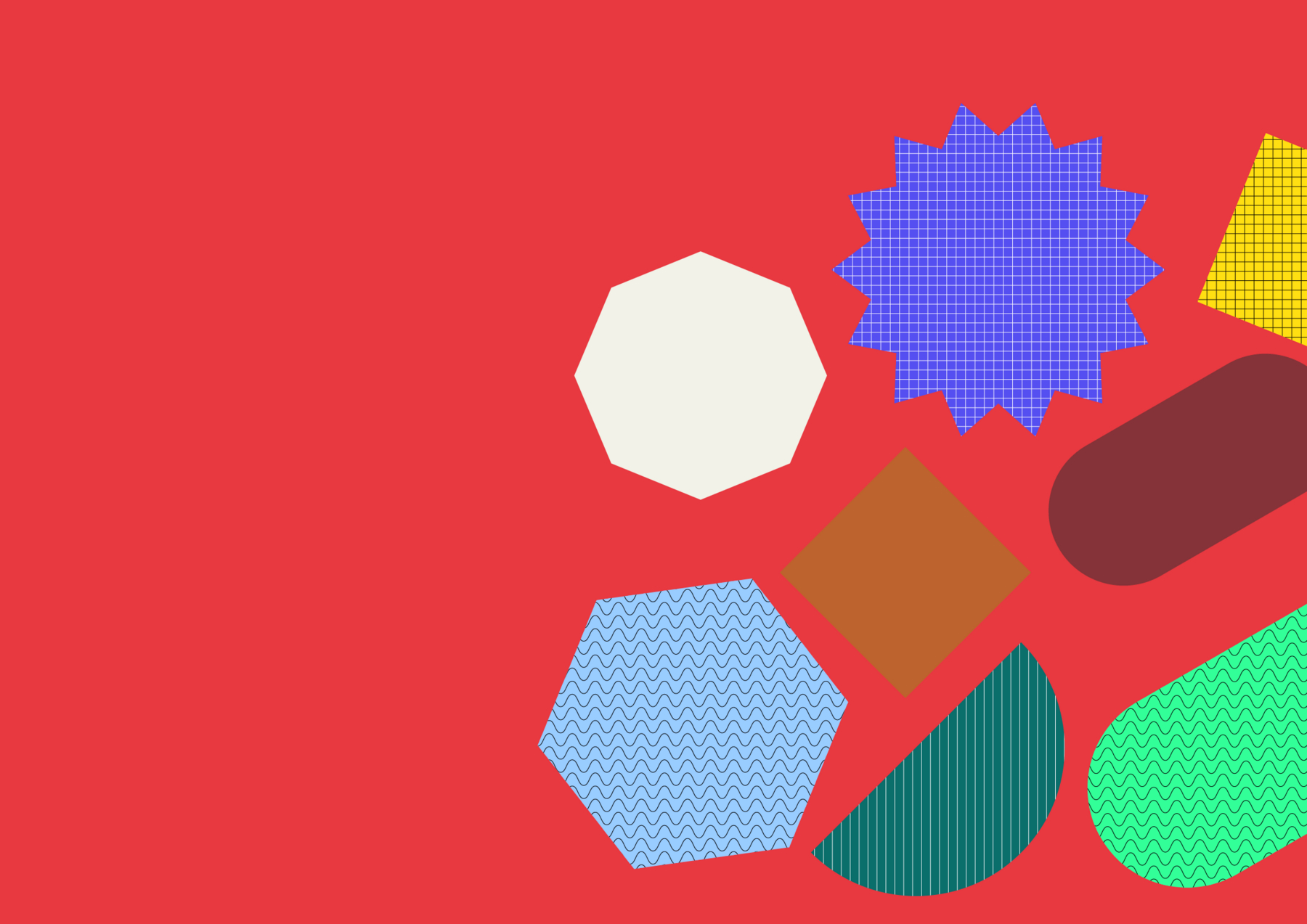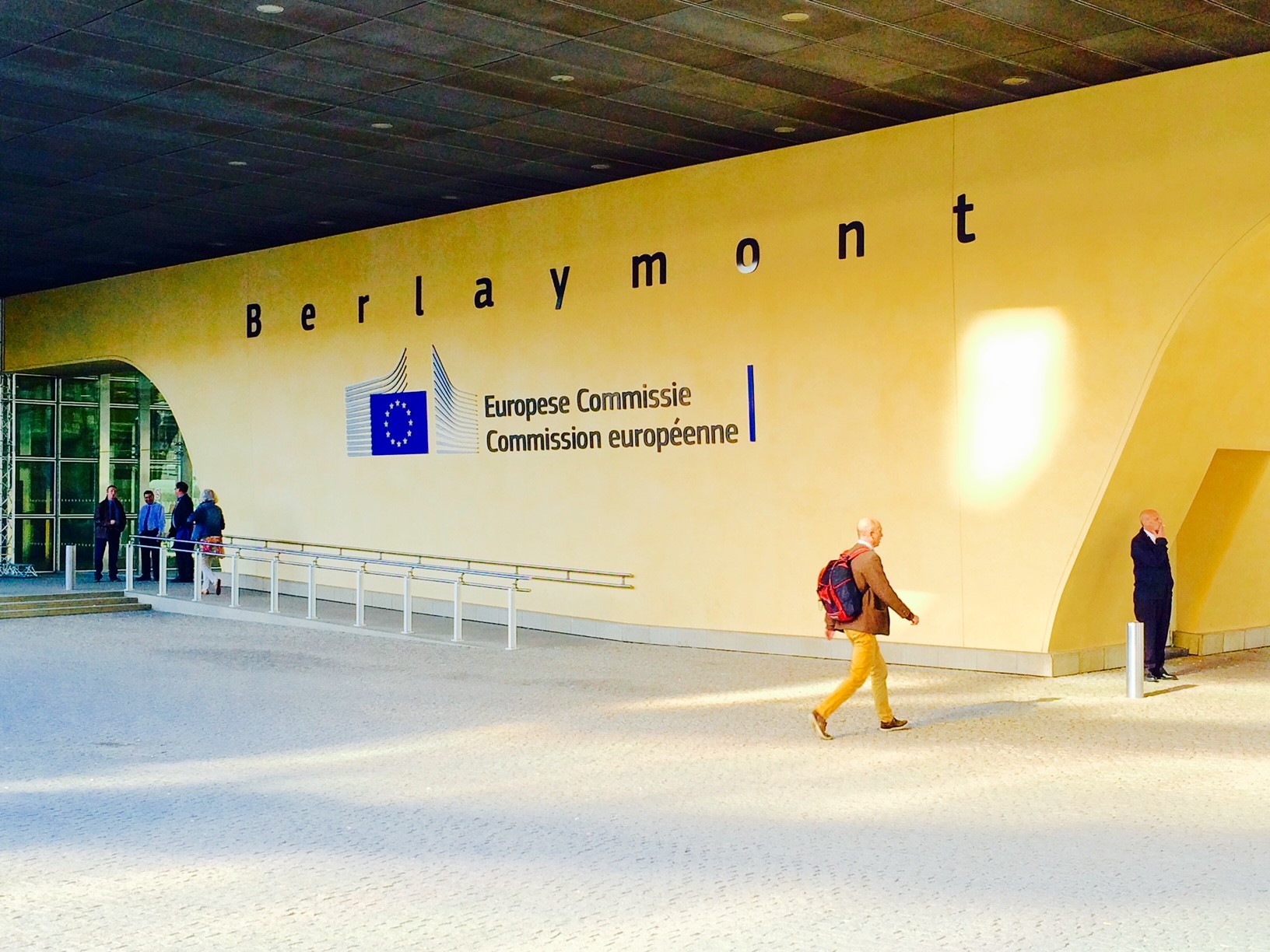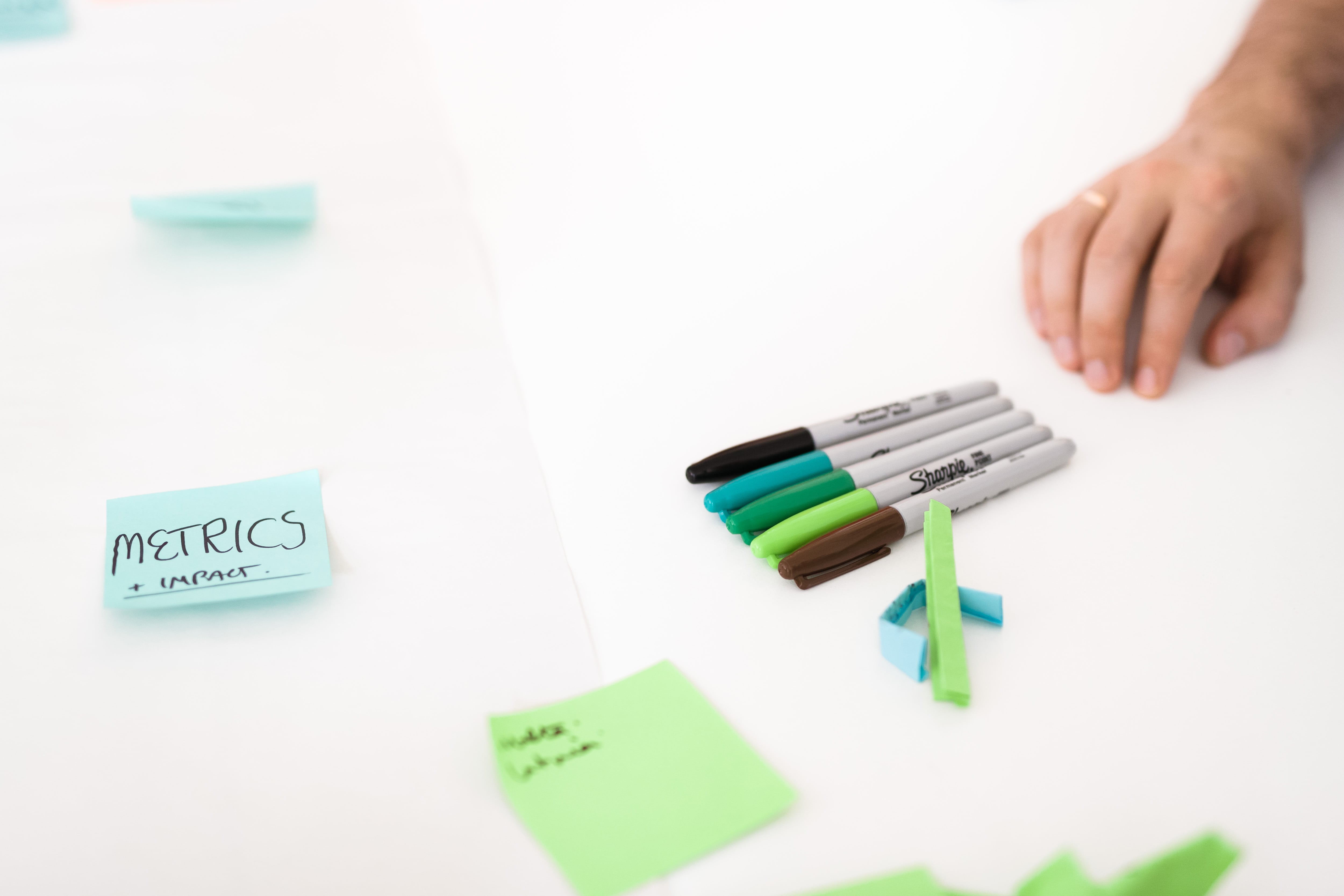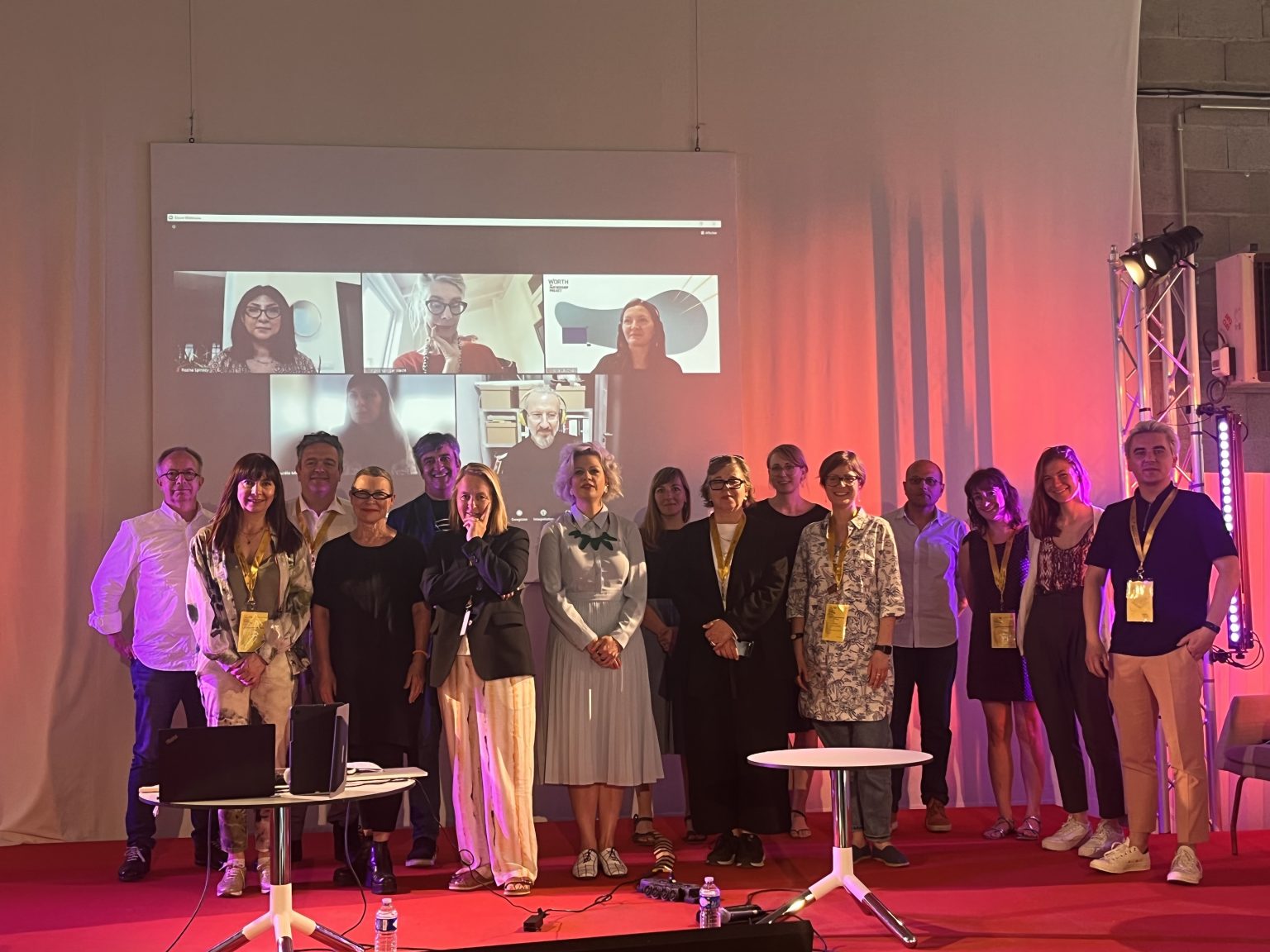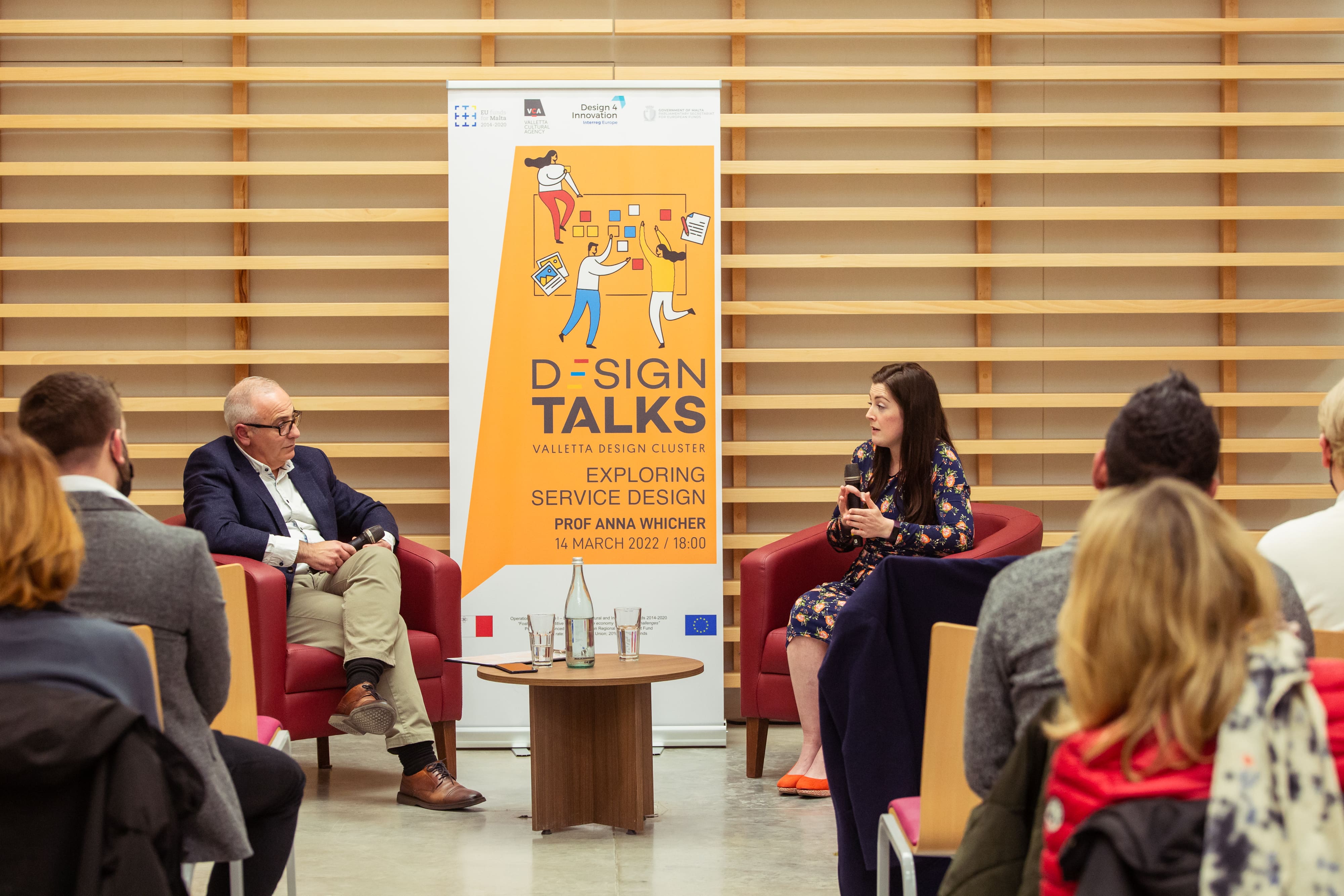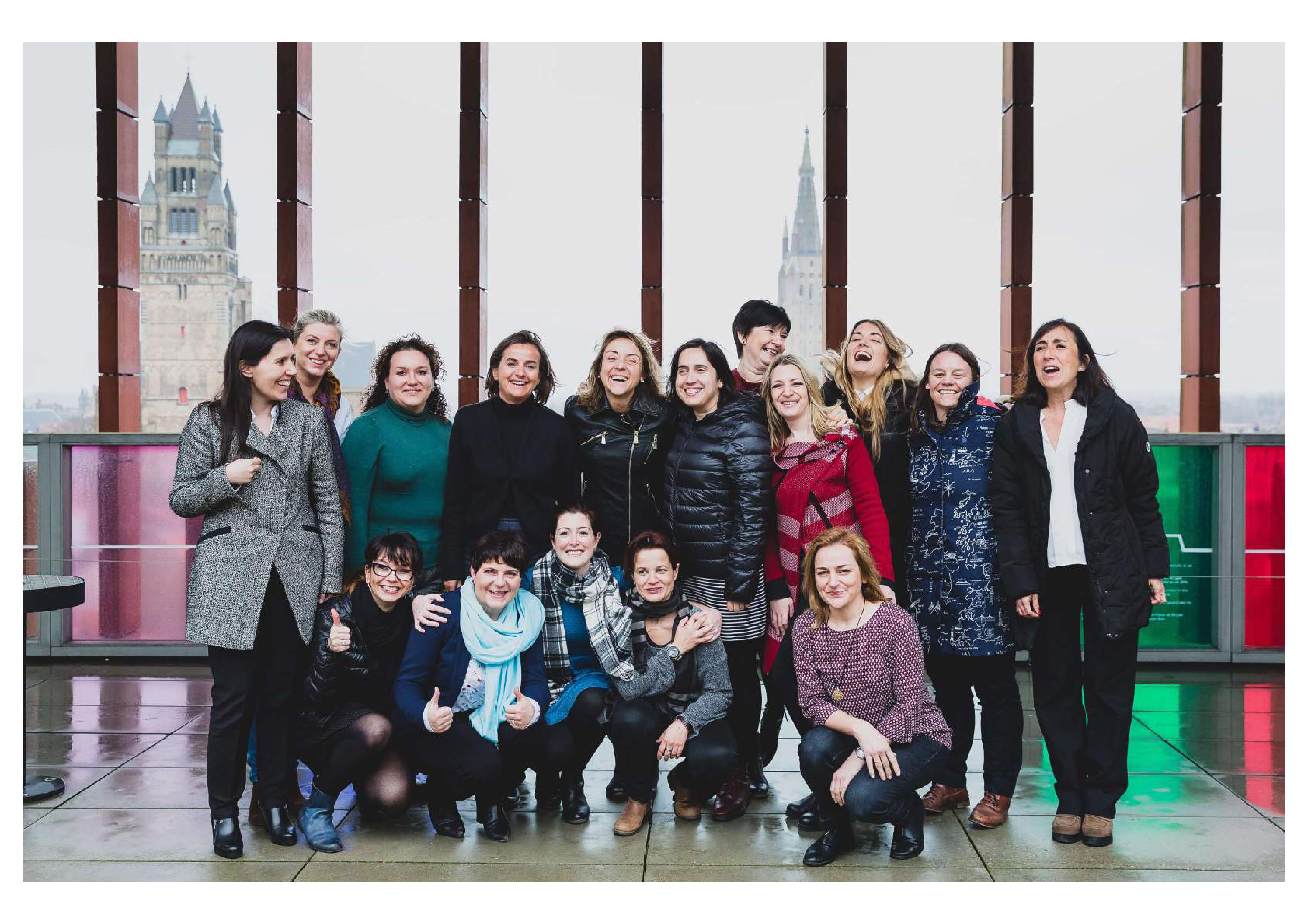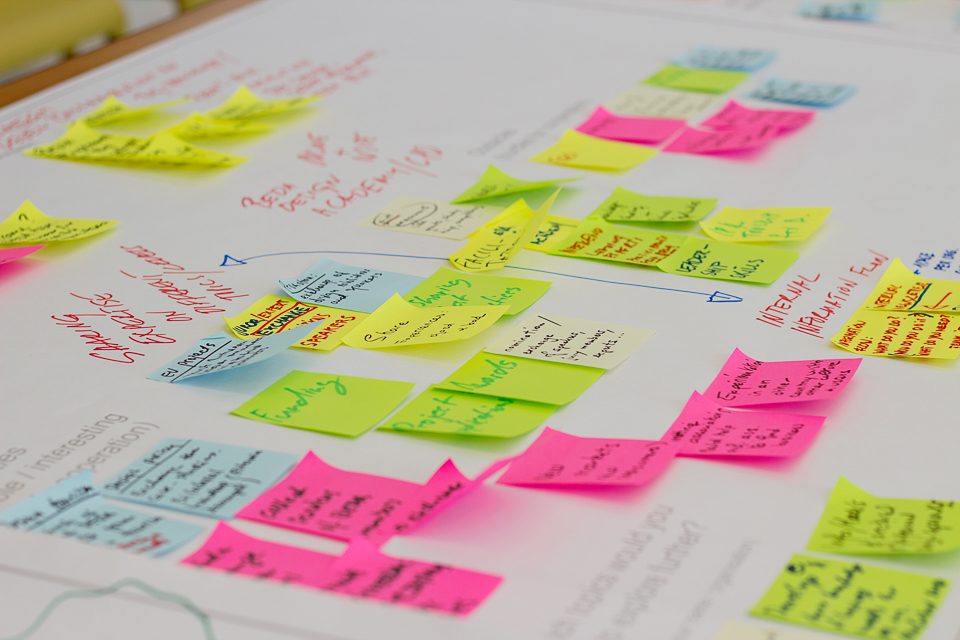The first semester of Design4Innovation was a busy six months for our project partners. We hit the ground running and held two partnership meetings. Both partnership meetings, in Bruges and in Thessaloniki were successful in terms of interregional learning and taking us closer to developing Design Action Plans and influencing Operational Programmes in our regions. After each meeting partners are bringing the knowledge back to the regions - discussing the project progress with their Stakeholder Groups and disseminating the learnings during promotional events.


Flanders Innovation & Enterpreneurship (VLAIO) held their events in March in Leuven (photos above). The Flemish stakeholders found the Ecosystem Mapping workshop really engaging and declared their continued support for the project goals.
During the partnership meeting in Bruges, we visited three SMEs that have used support scheme “SME Wallet” offered by VLAIO. Our Maltese partner - the Culture Directorate, found the visit really useful and invited VLAIO to join their regional event in Malta to talk about the “SME Wallet”. They both reported it as a very beneficial learning experience.

KEPA - Business and Cultural Development Centre from Thessaloniki decided to double their efforts and on the top of the national Operational Programme, they are aiming to influence the regional OP for Central Macedonia. They held two events, in Athens and Thessaloniki, and in both of them the stakeholders were actively involved, showed lot of enthusiasm and were willing to contribute with their knowledge, experience and networks. Similarly, PDR held two events, on regional level in Wales in January, and for a broader, national stakeholder group in London in March. The meeting in London attracted almost 60 participants and the project was very well received.


In Latvia (above), Dzintra Purvina from the Ministry of Culture gave a summary of the new Design Strategy that she was working on at the time, and that has now been published with an input from our project. Then the participants worked in groups on mapping of Latvian Design Ecosystem. Although the Ministry of Culture had already worked on design ecosystem of Latvia before, there were a lot of new insights and aspects raised during the exercise. The Marshal's Office of Silesia Region organised their event in collaboration with Castle Cieszyn - a regional design center, which has been promoting design as a tool for the restructuring of the Silesian Voivodship since 2005. The stakeholders from government, academia and businesses identified multiple actors and initiatives in the Silesian Design Ecosystem, however agreed that the relationships between them are rather incidental and they are not consistently monitored and developed. Design4Innovation project will help to motivate regional ecosystem participants to create a sustainable network that will enable stakeholders, designers, entrepreneurs and consumers to collaborate and to be involved in creation of the regional design policy.

Barcelona Design Centre successfully replicated the Ecosystem Mapping workshop (above left) with more than 20 entities presenting professionals from companies, members of the ‘Design Cluster’, and other professionals of relevant entities such as Design Schools, Design Professionals Associations and public members of the Catalan Government’s Innovation Agency. For their Stakeholder Group meeting, BCD worked together with another Interreg Project "Regional Creative Industries Alliance" which strives to shape better regional Culture and Creative Industries policies towards a modern business ecosystem. They created positive synergies to get a stronger and more involved group of stakeholders. Our Galician partner - GAIN, was undergoing an organisational restructuring this semester. Nevertheless, they have managed to promote the project and the Ecosystem Mapping workshop has just taken place on 21st of September. Having mapped and validated the ecosystems in all partner regions, we are now preparing our first Policy Booklet. Stay tuned!
